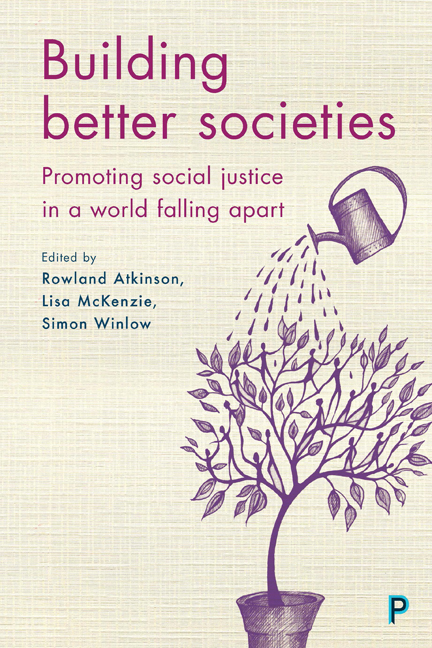Fifteen - Thinking prosocially
Published online by Cambridge University Press: 05 April 2022
Summary
If you have a credit card, a smart phone and a health plan you have everything you need.
When we started this project we wanted to do something slightly different. Our main aim was to enable researchers to write in a different voice, less constrained by academic convention, and more directly applied to the question of how their knowledge could be used to help make societies better places for more people. Writing like this is often difficult for academics because, while of course they have their own political beliefs and ideas, they follow conventions that compel them to use dispassionate modes of expression, and frequently worry about providing readers with a sufficiency of convincing evidence. To offer a judgement more clearly shaped by ideological conviction is often believed to suggest a deficit in intellectual objectivity and academic rigour, and to believe too passionately or to argue too forcefully are often considered rather uncouth in the genteel world of academia. Polemical argumentation, no matter how cogent and convincing, often remains fairly marginal to the intellectual cultures of the social sciences. Carefully evidenced claims written in dry and uninspiring prose is a firmly established norm that is subtly reproduced in each new generation of academics by those that preceded it. But talking in different voices and to different communities who often seek a more active response from universities and their researchers is critical to addressing the kinds of concerns raised in this book.
We accept that carefully evidenced analysis should remain a defining feature of social scientific writing, but we are also arguing that it is important to make more room in our disciplines for forthright political critique and impassioned discussions. A significant motivation for many social researchers is the possibility that our work will act on and improve the world, even if this may only be in a small way. The push to work with and for business in academia in many countries suggests that debates will continue over the question of who and what publicly funded research is for.
- Type
- Chapter
- Information
- Building Better SocietiesPromoting Social Justice in a World Falling Apart, pp. 195 - 200Publisher: Bristol University PressPrint publication year: 2017



